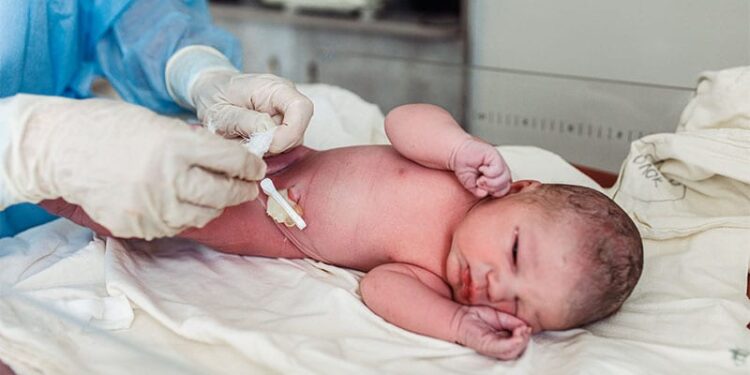TOPLINE:
Febrile infants aged 90 days or younger with positive urinalysis (PU) results had significantly higher rates of bacteraemia than those with negative urinalysis (NU) results, but no significant difference in rates of bacterial meningitis was observed between the two groups. Notably, no cases of bacterial meningitis were reported among infants older than 60 days or with confirmed urinary tract infection (UTI).
METHODOLOGY:
- This planned secondary analysis of data from the Febrile Infant Diagnostic Assessment and Outcome (FIDO) study, a prospective, multicentre cohort study, assessed the prevalence of invasive bacterial infections (IBIs), namely bacterial meningitis and bacteraemia, among febrile infants aged 90 days or younger with PU results who were recruited across 35 UK and Ireland centres from July 2022 to August 2023.
- It included 1480 febrile infants aged 90 days or younger who underwent urinalysis, of whom 549 had PU results and 931 had NU results.
- The primary outcome was the prevalence of IBIs, defined as bacterial meningitis or bacteraemia, among infants with PU results.
- Secondary outcomes were comparisons of demographics, interventions (lumbar punctures and antibiotics), laboratory results, and IBI rates between infants with PU and NU results.
TAKEAWAY:
- Febrile infants with PU results had a significantly higher rate of bacteraemia than those with NU results (7.1% vs 1.9%; P < .0001).
- No cases of bacterial meningitis were reported among infants older than 60 days or those with confirmed UTI.
- Infants with PU results were more likely to receive parenteral antibiotics (90.2% vs 76.9%; P < .0001), be admitted to the hospital (94.5% vs 86.3%; P < .0001), and undergo lumbar punctures (65.0% vs 57.5%; P = .004) than those with NU results.
IN PRACTICE:
“These combined data provided compelling evidence that while all febrile infants with PU should undergo blood culture testing, invasive lumbar punctures are not routinely required,” the authors wrote.
SOURCE:
This study was led by Holly Drummond, Wellcome-Wolfson Institute for Experimental Medicine, Queen’s University Belfast School of Medicine, Dentistry and Biomedical Sciences, Belfast, Northern Ireland. It was published online on July 08, 2025, in Archives of Disease in Childhood.
LIMITATIONS:
Despite the large sample size, IBI event rates were low. The lack of a universally accepted definition for UTI could have introduced variability across sites.
DISCLOSURES:
The FIDO study was supported by a Royal College of Emergency Medicine Doctoral Fellowship. The authors declared having no competing interests.
This article was created using several editorial tools, including AI, as part of the process. Human editors reviewed this content before publication.
Source link : https://www.medscape.com/viewarticle/bacteraemia-high-meningitis-low-positive-urinalysis-2025a1000ik9?src=rss
Author :
Publish date : 2025-07-16 12:00:00
Copyright for syndicated content belongs to the linked Source.














